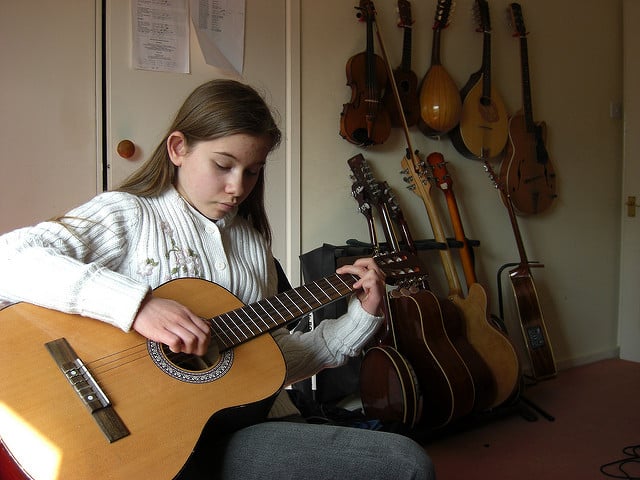
New Commission to assess musical progression of young people
Billed as the first of its kind in the UK, the Commission will conduct research and seek submissions about barriers into music for young people.
The barriers that lead so many young people to stop learning an instrument will be under investigation by the Music Commission, a new initiative setting out to discover more about the challenges and opportunities available for young musicians. The Commission will be seeking submissions and commissioning research to shed more light on music progression, both in and out of school.
Research goals
The Arts Council England (ACE)-backed Commission takes place in the context of continued decline of arts in schools, with entries into creative GCSEs falling by 9% last year.
Noting that 77% of 8-10 year olds currently play an instrument, but by the time a young person is 16, 61% have stopped taking music lessons, the Commission has four key goals:
- To provide evidence for the diversity of music education provision and achievement
- To understand progression in music learning in and out of schools
- To articulate the need for all young people to have the best opportunities and conditions to learn a musical instrument
- To identify solutions to tackle the problems and barriers learners face in their musical development.
A panel of experts, including cellist Abel Selaocoe and Executive Director of Creative Economy and Data Analytics at Nesta, Hasan Bakhshi, will work alongside an academic reference group of international experts on the project.
“There are tremendous music initiatives out there, many thousands of committed teachers and superb resources available,” said Nicholas Kenyon, Managing Director of the Barbican and Chair of the Commission. “So why as young people move into adulthood does this become more difficult for them?
“We know the clear benefits music provides to learners’ confidence and educational attainment, as well as to society and the economy. This Commission will not be about proving that case again – it will be about exploring the best ways to encourage talented young people to move forward.”
Kenyon added: “Our job will be to make sense of what’s going on and look for the best ideas – not just in the UK but around the world – and make proposals that can give everyone, whatever their ability or background, the best possible support to take forward their musical interests.”
The Music Commission panel will meet throughout 2017 and 2018, and publish a final report in September 2018.
Join the Discussion
You must be logged in to post a comment.